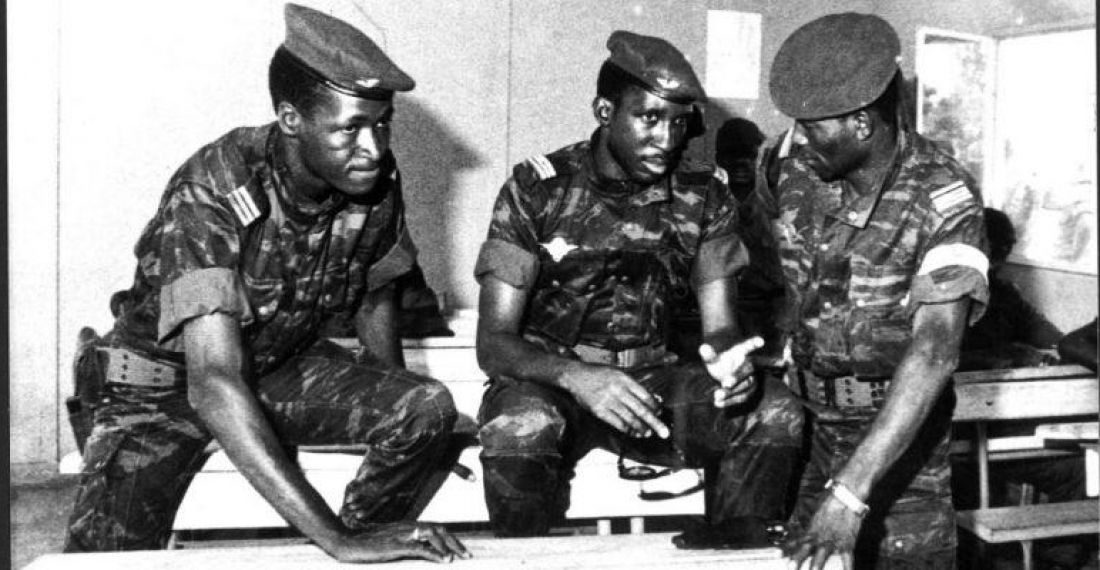Burkina Faso's former president Blaise Compaoré is being prosecuted on charges related to the assassination of revolutionary icon Thomas Sankara on 15 October 1987, when Compaore took over the leadership of the country following a coup. Prosecutors on Tuesday (8 February) asked of a thirty year prison sentence against the former president, who has been in exile in Ivory Coast since a popular uprising caused his departure in 2014.
This historic trial, which began last October, aims to identify the main culprits of the assassination of former revolutionary and leader of Burkina Faso Thomas Sankara and his twelve companions during the 1987 coup d'état. An anxious atmosphere could be felt in Burkina Faso as the trail entered a crucial stage, especially as the country was further shaken by a political crisis following yet another military coup on 24 January, as well as a result of recurrent jihadist attacks in the country.]
At the request of the defence lawyers, which have yet to make a plea, the trial was then suspended until March 1. Without waiting for the verdict, the prosecutors asked the court to find Blaise Compaore guilty of “concealment of a corpse”, “complicity of murder” and “attack on state security”.
Who was Thomas Sankara?
Sankara was a 33-year-old army captain in Burkina Faso when he led a coup in 1983. He is now regarded as a role model by African revolutionaries, even though during his time in office he did not always have friendly relations with his West African counterparts, who were unfamiliar with his radical ideals. Among other things, he implemented nationalisations, mass social housing and a ban on female genital mutilation, polygamy and forced marriage. He also renamed the country from Upper Volta to "Land of Incorruptible People", which became Burkina Faso in the local Mòoré language.
However, his downfall was as dramatic as his reforms, as he and 12 colleagues were shot dead on 5 October 1987 whilst attending a meeting of the ruling National Revolutionary Council.
During the trial, a thirty year prison sentence was also demanded by the prosecutors for the commander of Compaore’s guard, Hyacinth Kafando, who is suspected of having led the assassination operation, and who who has also been in exile since 2016.
In addition to these two notable absentees, twelve other defendants were present for the trial, the overwhelming majority of whom have pleaded not guilty.
Silence about this assassinations prevailed during the 27 years that Compaore was in power, but the families of the victims now seem to be relieved that the killers are being brought to justice. Conveniently also, the new Burkinabe junta is getting rid of a potential political opponent.







